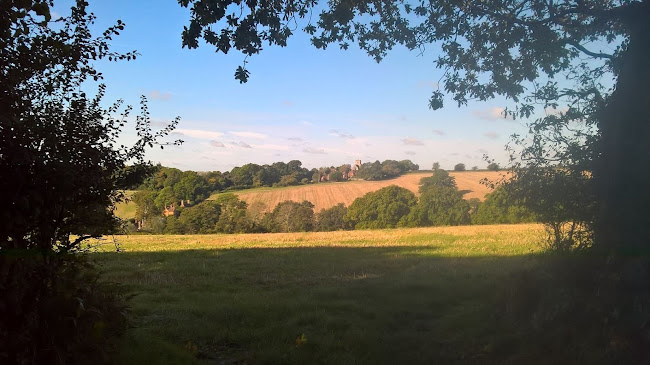If you would like a re-cap on last night's study or you'd like to look ahead to Wed 5th May 7:45pm, you might find some of this helpful:
Homegroup Leaders Notes (5) 1
John 3:11-24
Though we included it
last time, I suggest you also read verse 10 this week!
How does the passage say we can know if we are
genuine believers? What ways of distinguishing true and false believers does it
give?
(If
you really followed up on everything that came out of this question, it might
give you a way in to the whole passage! You will probably need to point people
to some of the specific verses mentioned below.
For a
brave alternative way of doing the study (!) you could try making lists on big
sheets of paper of everything that belongs to the devil / Cain / evil one /
murderer / world / hatred / death / words tongue only etc. side on the one hand
and the child of God / love / righteous / life / hated / cross / actions / rest
/ confidence / obedience etc. side on the other and discuss John’s arguments as
you go along. To get the most out of this approach the leader would need to
have a firm grasp of the logic of all the elements and how they fit together
and be ready to think on his feet! Why does each of those things belong where
it is? Etc.)
v10: that if someone
does not love his brother (a fellow-Christian) he shows himself not to be a
true child of God. V14: love for the brothers. Cf. v15. Love is characteristic
of God and his children; hatred is characteristic of the devil and his children
(v10).
Vv16 & 19.
V24 – real believers
obey God’s command, explained in v23.
We know by the Spirit
that Jesus lives in us v24. Perhaps we know that Jesus lives in us (v24) by the
love, righteousness and faith which the Spirit works in us and also perhaps by
the Spirit’s inner witness in our hearts.
What are the two “examples” given in this
passage? What is it about them John wants us to learn from (to copy or to
avoid)?
Cain v12 (Genesis 4).
Jesus v16. Cain took his brother’s life; Jesus gave his life for his brothers.
V15 on hatred and
murder see Matthew 5:21-22.
Why might the world hate us? (v13 – see also
v12) Why did Cain hate Abel?
Remember what John has
said about the world as in rebellion against God e.g. 2:15-17; 3:1.
Non-Christians might act like Cain (v11-12) and hate Christians because the
Christian’s righteous actions expose their unrighteousness.
What does our culture mean by “love”? What
might people say “love” is? How would people finish the sentence “love is…”?
? A feeling. ?
sentimental. ? confused with lust / sex.
What does verse 16 suggest real love is? How
does the passage challenge our culture’s view of love?
The cross defines real
love. It is to do with purposeful self-sacrifice, acting in a way that’s costly
to self for the good of others. (Jesus’ love for us was not because we are
attractive or loveable.)
How should we lay down our lives for our
brothers (v16)? What might it mean in practice do this / love one another? What
practical ways of doing this are suggested in the passage? (vv17-18)
Purposeful
self-sacrificial costly servant-hearted love in action for the undeserving like
Jesus showed. V17: it may involve practical or financial help. V18: real love
will involve actions, not just words
In what ways could you / your group / our
church show love like this?
How does v19 suggest that Christians can have a
clear conscience?
Genuine acts of love
(v18) are a sign of being a real believer. Only believers will be genuinely and
self-sacrificial in their love of others. Such love is God’s supernatural work
in us.
If our hearts condemn us (v20), does that
necessarily mean we are not genuine believers? Why? What reassurance does John
have for someone whose heart condemns him?
John seems to expect
that from time to time our hearts may (wrongly) condemn us. It’s reassuring
simply to know that guilty feelings don’t mean we’re condemned. God is greater
than our hearts – and God has loved us and sent Jesus to die for all those who
will trust in him.
What promise and conditions does v22 give?
We receive whatever we
ask in prayer if we obey God’s commands and do what pleases him. We must do
this in what we ask for too. The verse seems to imply that we pray according to
God’s will. Cf. 5:14-15.
How does v23 sum up what God commands of the
Christian?
Believe in Jesus and
love one another.
Jesus’ command to
love: John 13:34; 15:12, 17.
Summary points / applications / for prayer
& praise:
John Stott’s summary
of vv11-18: “Hatred characterizes the world, whose prototype is Cain. It
originates in the devil, issues in murder and is evidence of spiritual death.
Love characterizes the Church, whose prototype is Christ. It originates in God,
issues in self-sacrifice and is evidence of eternal life.” (Epistles of John, Tyndale NT Comm., IVP,
1964, p144)
Praise God for his
love for us and the death of the Lord Jesus for us.
Pray that we would
love one another sincerely and follow Jesus’ example, demonstrating
self-sacrificial love in action. Look out for opportunities to do this.
Thank God that he
hears our prayers.
Homegroup Leaders Notes (6) 1
John 4:1-21
Why do these verses suggest Christians need to
be discerning? Why is it necessary to “test the spirits”? (v1)
How do these verses suggest that we should
“test the spirits” / recognise true and false teaching / the Spirit of truth
and the spirit of falsehood?
vv2-3
V6: the “us” is
probably the Apostles cf. 1:1-4, 19.
What comfort does verse 4 give us in the face
of false teaching?
Can you think of ways in which we might be
tempted to accommodate our teaching to the “viewpoint of the world” so that
people might listen to us (v5)?
Why should we love one another?
V7 Similarly, v16b.
V11. Similarly, v19.
v21.
(If you didn’t use the
“what do people in our culture think love is” etc. question last time, you
could use it here in contrast to vv9&10)
How should we love one another? What should our
love be like?
vv9-10
Since God is unseen (v12), how can we know he
loves us?
v14. See also vv9-10.
How can we know that we are Christians?
Vv13-16.
Why can the Christian be without fear? What
does the Christian not fear? (vv17-18)
Why do verses 20 and 21 suggest it’s incredible
to say we love God if we do not love fellow Christians?
See also 5v3
Summary points / applications / for prayer
& praise:
Pray for true teachers
and teaching in the church and that we might recognise and reject false
teachers and teaching, not seeking to accommodate our teaching to what people
want to hear.
Give thanks for God’s
love for us and the confidence it gives us.
Pray for God’s help to
love fellow Christians – especially any you find difficult.




